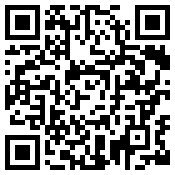
THE KHAN ACADEMY
Salman Khan (Sal) founded the Khan Academy with the hope of using technology to foster new learning models. The Khan Academy is a not-for-profit organization with the mission of providing a high quality education to anyone, anywhere. They currently have 1000+ videos (growing fast!) on YouTube covering everything from basic arithmetic and algebra to differential equations, physics, and finance which have been recorded by Salman Khan.
SALMAN KHAN
He is currently the portfolio manager of a fund based in Menlo Park, CA. Sal received his MBA from Harvard Business School where he was president of the student body. He also holds a Masters in electrical engineering and computer science, a BS in electrical engineering and computer science, and a BS in mathematics from MIT where he was president of the the Class of 1998. While at MIT, Sal was the recipient of the Eloranta Fellowship which he used to develop web-based math software for children with ADHD. He was also an MCAT instructor for the Princeton Review and volunteered teaching gifted 4th and 7th graders at the Devotion School in Brookline, MA (Source).
SIMPLIFY
Sal knows his stuff (pretty well!), and has a great ability to simplify what he teaches using story telling with a laid-back approach (conversational style). As far as I know, his formula to create learning content is quite unique:
Alright, he is not going to get A+ for graphics, but I would give A+ for creativity, pedagogy, passion, knowledge sharing, and efficient development. How many educators have produced 1000+ videos (x10 = 10000 minutes/60 = 166.6 Hours), or more than 166 hours of e-learning content in a few years?
Yes, I also love the way he has chunked most of his videos into digestible 8-12 minute lessons, which are perfect for learning-on-the-fly.
INSPIRE
- Microsoft Paint is his blackboard (Who needs PowerPoint?), which he uses to draw and illustrate step-by-step what he is explaining.
- He records the narrated lessons using a screen recording software (Here are a few free ones!).
- When recorded (and edited), he uploads his recordings to YouTube (YouTube Channel).
- Then he links his recordings or lessons to The Khan Academy website, which indexes the hundreds of videos as he likes.
Alright, he is not going to get A+ for graphics, but I would give A+ for creativity, pedagogy, passion, knowledge sharing, and efficient development. How many educators have produced 1000+ videos (x10 = 10000 minutes/60 = 166.6 Hours), or more than 166 hours of e-learning content in a few years?
Yes, I also love the way he has chunked most of his videos into digestible 8-12 minute lessons, which are perfect for learning-on-the-fly.
INSPIRE
It is inspiring to see Sal share his amazing knowledge to the world in such a creative and efficient way. I suppose he deserves an Oscar for knowledge sharing :)
Here in Malaysia and Singapore, parents spend millions (if not billions of) dollars on tuition for their kids to score great grades. What if we could inspire geniuses here who have a knack of simplifying content to do similar kind of initiatives. By doing so, we can level the field a bit more and enable perhaps some of those who couldn't afford tuition to have a chance to compete and do better. Well, you still need a computer device and Internet (unless the content is downloaded), but it would still be a great start.
In other words, we don't actually need to spend millions to produce quality e-learning content and learning experiences. With today's free web 2.0 technology, we could do it practically with no significant initial cost (except for our time).
For example, we could use Google Sites to develop our website, free screen-recording (casting) software to capture our lessons, and use YouTube to upload our content (or perhaps Google Video, if our videos are longer than 10 minutes). If we are developing PowerPoint presentations, we could use SlideShare (and link uploaded audio, which can be synchronized with the slides. Audio upload alternative: Internet Archive). Another PowerPoint (convert-to-Flash) upload alternative would be SlideBoom, which also captures the PowerPoint animations.
These are just a few possibilities of many we can use to share our knowledge and skills to the world. I suppose the biggest struggle today would be to find the time to do it (and the appropriate tool(s) to use) :(
On a positive note, Sal has found the time and his work is inspiring. He fits well with my new learning motto (and adventure):
Simplify Ideas, Inspire People! :)
In other words, we don't actually need to spend millions to produce quality e-learning content and learning experiences. With today's free web 2.0 technology, we could do it practically with no significant initial cost (except for our time).
For example, we could use Google Sites to develop our website, free screen-recording (casting) software to capture our lessons, and use YouTube to upload our content (or perhaps Google Video, if our videos are longer than 10 minutes). If we are developing PowerPoint presentations, we could use SlideShare (and link uploaded audio, which can be synchronized with the slides. Audio upload alternative: Internet Archive). Another PowerPoint (convert-to-Flash) upload alternative would be SlideBoom, which also captures the PowerPoint animations.
These are just a few possibilities of many we can use to share our knowledge and skills to the world. I suppose the biggest struggle today would be to find the time to do it (and the appropriate tool(s) to use) :(
On a positive note, Sal has found the time and his work is inspiring. He fits well with my new learning motto (and adventure):
Simplify Ideas, Inspire People! :)












No comments:
Post a Comment